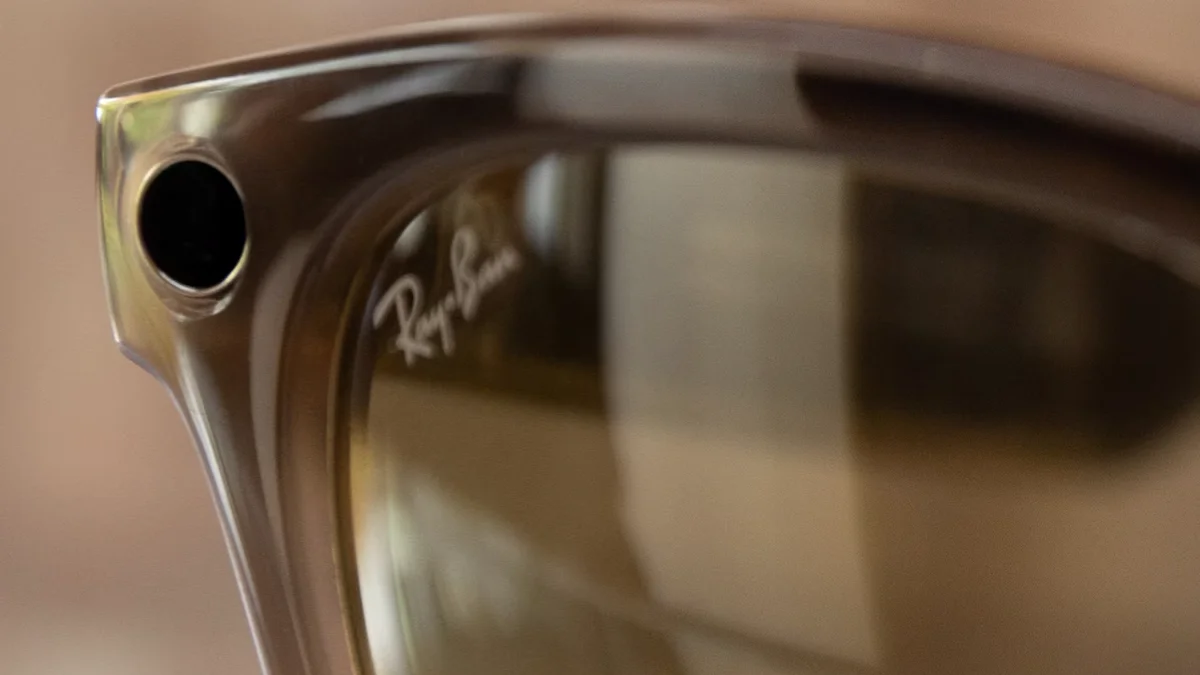Necessary Always Active
Necessary cookies are required to enable the basic features of this site, such as providing secure log-in or adjusting your consent preferences. These cookies do not store any personally identifiable data.
|
||||||
|
||||||
|
||||||
|

Meta’s successful collaboration with EssilorLuxottica has triggered a new wave of smart glasses FOMO among big techs. Counterpoint Research reported that Meta smart glasses have become a best seller in the majority of Ray-Ban stores in the Middle East, Europe and Africa. Sales have already topped 1 million units. And this success has now motivated rivals to develop their own smart glasses, Reuters reported.
Meta’s Ray-Bans smart glasses come with a mic, camera, audio, and AI assistant all wrapped into the frame. A pair of the augmented reality glasses retails at $300. The smart glasses have a normal look. Unlike the bulky AR/VR headsets that have failed to appeal to the masses, the glasses are lightweight, weighing below 50 grams.
Their in-built processing power and memory offer users helpful features such as handsfree video or photo capture and real-time translation. The smart glasses use the latest chipsets, batteries, and software. This makes it easy for users to connect them to their smartphones flawlessly.
The process is very similar to that of connecting smartphones to wireless earbuds. Meta’s smart glasses boast of a four-hour battery life. This is about four times that of its rival product, Snap which lasts for less than an hour.
Several big techs are already eyeing the smart glasses market, which explains why the industry will come into sharp focus in 2025. Baidu unveiled smart glasses that are powered by AI bot, Ernie, last month. In the days that followed, reports emerged that Amazon is designing AI-powered glasses for its delivery drivers. Amazon’s smart driver eyeglasses are part of the company’s wider strategy to ensure smooth and efficient delivery of customer orders.
Sources close to the e-commerce giant said that once done, Amazon’s smart eyeglasses will provide drivers with turn-by-turn navigation along delivery routes and at every stop. The company will build the glasses on Amazon’s echo frames smart glasses, which enable users to use voice commands from Alexa and listen to audio. They will leverage a small display located on one of the lenses and will be able to take images of delivered products.
Reports indicate that Samsung, Apple, Alphabet, and Xiaomi are also working on new smart glass products. Suppliers are also boosting their production capacity. Vuzix, a company that specializes in lens production estimates that it will be able to make up to 50 million units per year by 2028. This is a huge increase from the 1 million units it produced this year.
Even with the growing big tech interest, the profitability of smart glasses remains a mirage. Analysts estimate the cost of making a pair of Ray-Bans smart glasses is about $135. This implies a 45% gross margin. This is slightly higher than Apple’s smartwatch, which is about 30%. Reducing the cost of battery and processor chips without affecting the features in the smart glasses and their functionality will be an uphill task for Meta.
Meta is currently hosting the Ray-Bans smart glasses in its Reality Labs. The division also hosts Orion, Meta’s augmented reality glasses prototype. Although forecasts show that this unit will grow fast in the coming years, it is expected to suffer operating losses of about $60 billion in the coming three years. But despite these losses, Meta plans to continue investing significant amounts in Reality labs.
“As we think about the 2025 budgeting process for Reality Labs, we want to make sure that we are investing appropriately behind the consumer momentum that we see,” Meta CFO Susan Li said during the Q3 earnings call.
Meta has already asked the unit to reduce its spending by about 20% between 2024 and 2026. Meta unveiled the Ray-Bans smart glasses and a prototype of its Orion AR glasses on September 25, 2024 during its annual Connect Event.